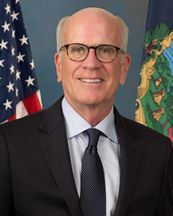0
0
0
Carried Interest Fairness Act of 2024
4/29/2024, 6:00 PM
Summary of Bill S 4123
Bill 118 s 4123, also known as the Carried Interest Fairness Act of 2024, is a piece of legislation introduced in the US Congress aimed at addressing the issue of carried interest in the taxation of investment income. Carried interest is a share of profits that investment managers receive as compensation, typically taxed at a lower rate than ordinary income.
The main purpose of the Carried Interest Fairness Act is to treat carried interest as ordinary income rather than capital gains, thereby subjecting it to higher tax rates. This change is intended to ensure that investment managers are taxed at the same rate as other workers, promoting fairness in the tax system.
The bill has garnered support from lawmakers who argue that the current tax treatment of carried interest disproportionately benefits wealthy investment managers and contributes to income inequality. Proponents of the bill believe that taxing carried interest as ordinary income will help generate additional revenue for the government and reduce the tax burden on middle and lower-income individuals. Opponents of the bill, however, argue that changing the tax treatment of carried interest could discourage investment and hinder economic growth. They contend that investment managers play a crucial role in allocating capital and driving innovation, and that taxing their compensation at a higher rate could disincentivize them from taking on risky investments. Overall, the Carried Interest Fairness Act of 2024 is a contentious piece of legislation that seeks to address the disparity in tax treatment between investment managers and other workers. Its fate in Congress remains uncertain as lawmakers continue to debate the potential impact of changing the tax treatment of carried interest.
The main purpose of the Carried Interest Fairness Act is to treat carried interest as ordinary income rather than capital gains, thereby subjecting it to higher tax rates. This change is intended to ensure that investment managers are taxed at the same rate as other workers, promoting fairness in the tax system.
The bill has garnered support from lawmakers who argue that the current tax treatment of carried interest disproportionately benefits wealthy investment managers and contributes to income inequality. Proponents of the bill believe that taxing carried interest as ordinary income will help generate additional revenue for the government and reduce the tax burden on middle and lower-income individuals. Opponents of the bill, however, argue that changing the tax treatment of carried interest could discourage investment and hinder economic growth. They contend that investment managers play a crucial role in allocating capital and driving innovation, and that taxing their compensation at a higher rate could disincentivize them from taking on risky investments. Overall, the Carried Interest Fairness Act of 2024 is a contentious piece of legislation that seeks to address the disparity in tax treatment between investment managers and other workers. Its fate in Congress remains uncertain as lawmakers continue to debate the potential impact of changing the tax treatment of carried interest.
Read the Full Bill
Current Status of Bill S 4123
Bill S 4123 is currently in the status of Bill Introduced since April 15, 2024. Bill S 4123 was introduced during Congress 118 and was introduced to the Senate on April 15, 2024. Bill S 4123's most recent activity was Read twice and referred to the Committee on Finance. as of April 15, 2024
Bipartisan Support of Bill S 4123
Total Number of Sponsors
1Democrat Sponsors
1Republican Sponsors
0Unaffiliated Sponsors
0Total Number of Cosponsors
30Democrat Cosponsors
28Republican Cosponsors
0Unaffiliated Cosponsors
2Policy Area and Potential Impact of Bill S 4123
Primary Policy Focus
Alternate Title(s) of Bill S 4123
Carried Interest Fairness Act of 2024
Carried Interest Fairness Act of 2024
A bill to amend the Internal Revenue Code of 1986 to provide for the proper tax treatment of personal service income earned in pass-thru entities.
Comments
Sponsors and Cosponsors of S 4123
Latest Bills
National Defense Authorization Act for Fiscal Year 2026
Bill S 1071December 13, 2025
Enduring Justice for Victims of Trafficking Act
Bill S 2584December 13, 2025
Technical Corrections to the Northwestern New Mexico Rural Water Projects Act, Taos Pueblo Indian Water Rights Settlement Act, and Aamodt Litigation Settlement Act
Bill S 640December 13, 2025
Incentivizing New Ventures and Economic Strength Through Capital Formation Act of 2025
Bill HR 3383December 13, 2025
BOWOW Act of 2025
Bill HR 4638December 13, 2025
Northern Mariana Islands Small Business Access Act
Bill HR 3496December 13, 2025
Wildfire Risk Evaluation Act
Bill HR 3924December 13, 2025
Energy Choice Act
Bill HR 3699December 13, 2025
ESTUARIES Act
Bill HR 3962December 13, 2025
Improving Interagency Coordination for Pipeline Reviews Act
Bill HR 3668December 13, 2025
Stop Wall Street Looting Act
Bill S 5333November 25, 2024





